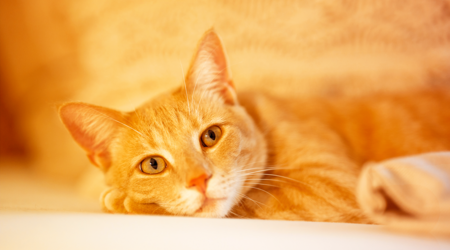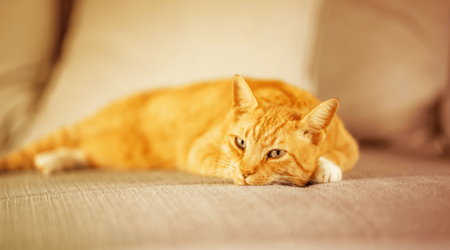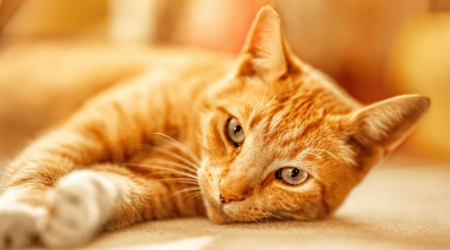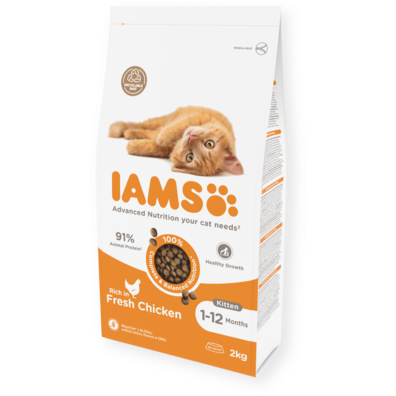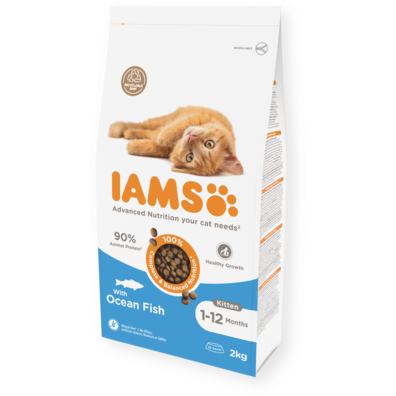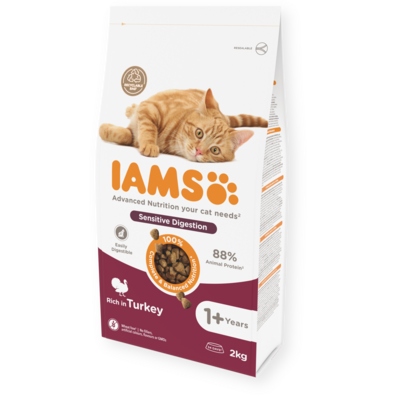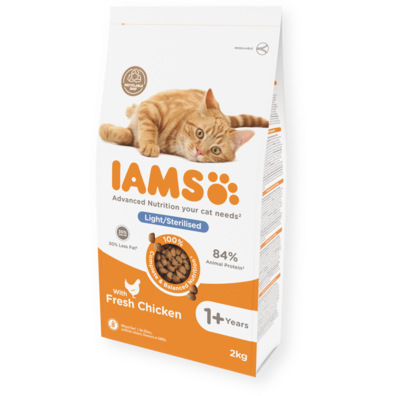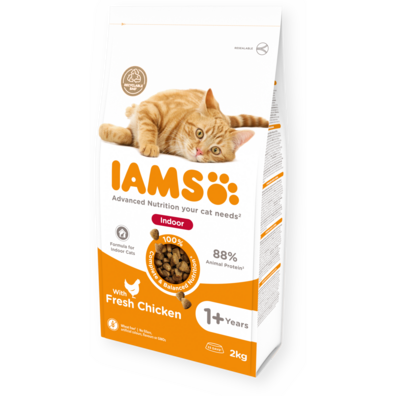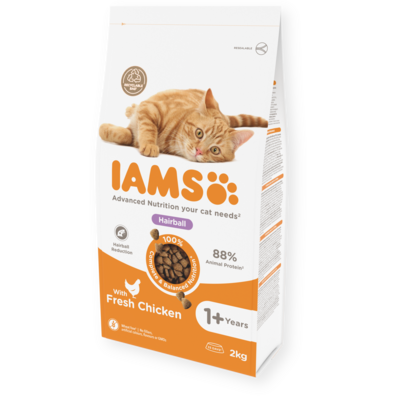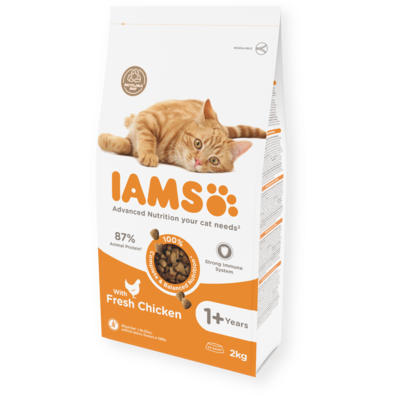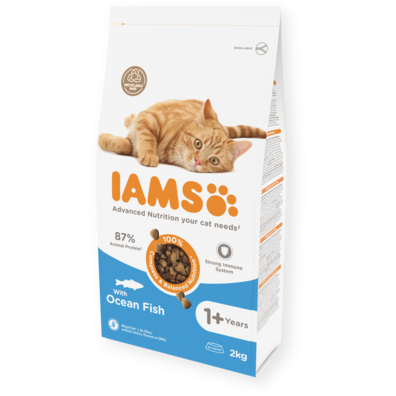Keeping your cat's skin and coat healthy
As a cat owner, there’s no better feeling than stroking your cat’s soft fur while they curl up on your lap.
Although they love getting stroked, your cat’s skin and fur also has many other important functions. It helps to control and maintain your cat’s body temperature, helps to protect them from viruses and enables them to communicate with other cats through scent markers. ]
The food you feed your cat can play a huge role in keeping their skin and coat healthy. Here are some of the key ingredients to look for to keep your cat’s skin and coat soft and nourished.
- A healthy cat coat and skin are essential for temperature regulation, protection and overall wellbeing.
- Nutrition plays a key role, with animal protein and essential amino acids like taurine supporting skin repair and coat quality.
- Omega 3 and 6 fatty acids help maintain a soft, shiny coat and healthy skin barrier.
- Vitamins and minerals such as A, E, biotin and zinc contribute to skin renewal, immunity and fur condition.
- Seasonal changes and ageing can affect coat quality, making life-stage-appropriate nutrition especially important.
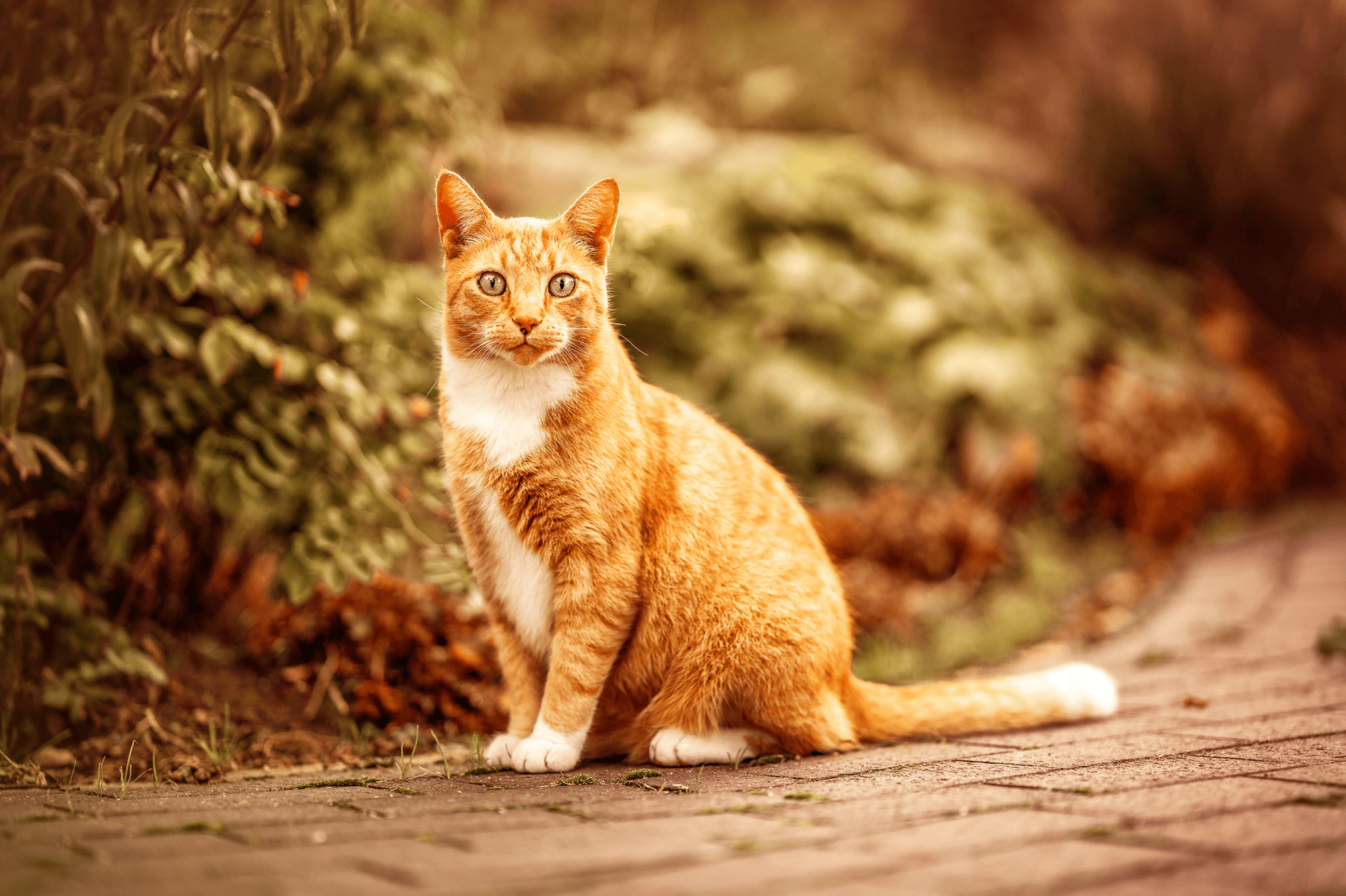
Protein and fatty acids
Protein is found in both animal and plant-based ingredients. Cats need animal-based protein in their diet in order to keep their muscles lean and healthy, and keep their coat soft and luxurious. Important amino acids like taurine are also only found in animal protein, which is one of the reasons we use it in all IAMS foods.
Omega 6 & 3 fatty acids, another type of fat, are found in vitamin-rich fish oils. It’s important to have a balance of these two fatty acids to help promote excellent skin and coat health.
Vitamins and minerals
Vitamins and minerals are essential to keep your cat’s skin healthy and their fur soft. The best way to provide them is through a complete and balanced diet that your cat loves to eat.
The vitamins and minerals below are an important part of your cat’s diet, so look out for these key ingredients in your cat’s food:
| Vitamin or mineral | Importance to skin and coat health |
| Vitamin A | Necessary for growth and repair of skin, and essential for good vision |
| Vitamin E | An important antioxidant, provides support for the immune system |
| Vitamin C | Another key antioxidant, also helps heal wounds Biotin Helps cats to use protein effectively |
| Riboflavin (B2) | For fat and protein metabolism |
| Zinc | For fat and protein metabolism |
| Copper | Involved in tissue, pigment and protein synthesis |
Changes in coat condition
If you notice a change in your cat’s skin and coat condition it’s most likely to be due to changes in season or life stage.
As cold weather approaches, most cats grow a thick coat to help keep heat in and cold air out. As the weather begins to warm up, they shed their thick, heavy coat. Most kittens are born with soft, fuzzy hair but as cats age a coarser coat grows. Older cats may need to use more of the protein in their food to support their muscles and so the condition of their coat can suffer as a result.
It’s important to feed your cat the right food for their life stage to ensure they are getting all the vitamins and minerals they need to stay healthy and full of vitality.
